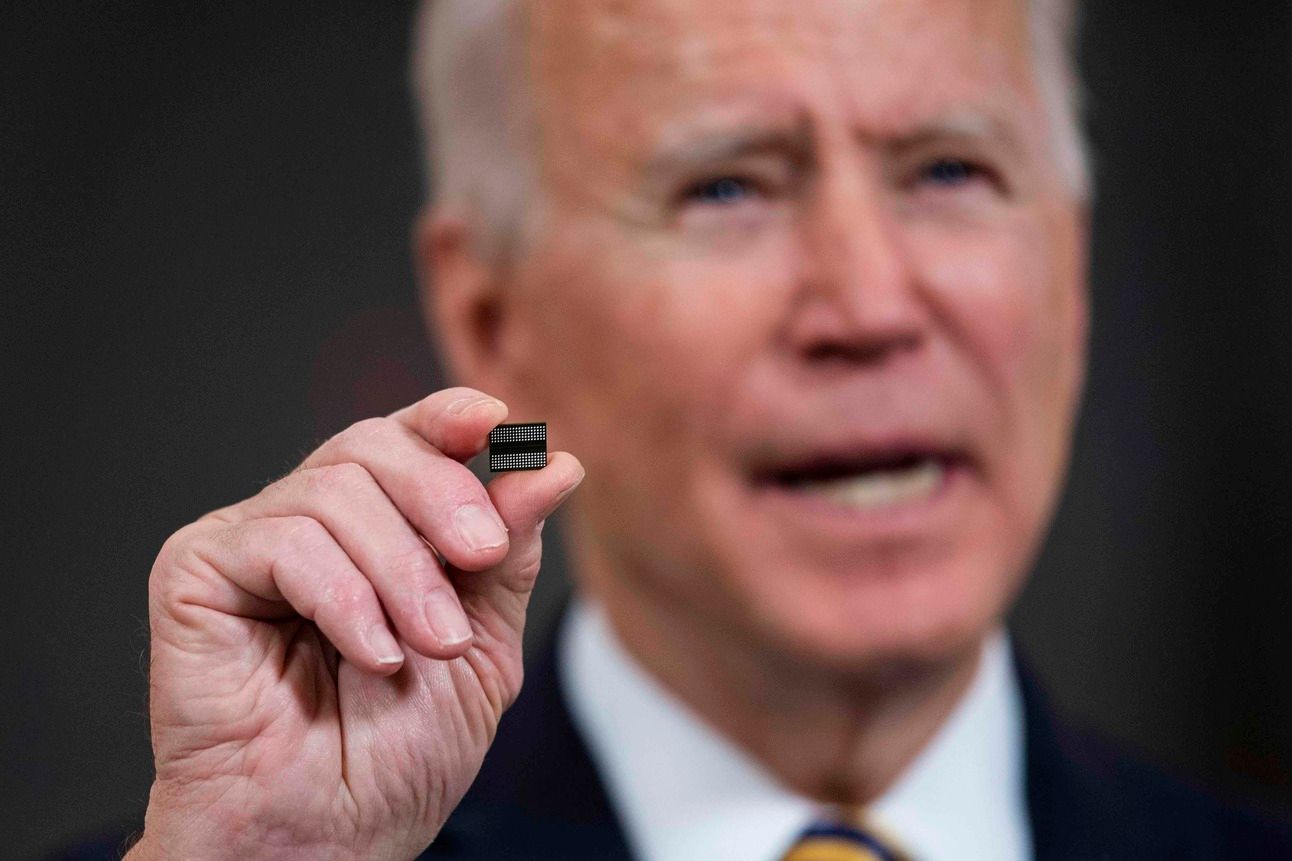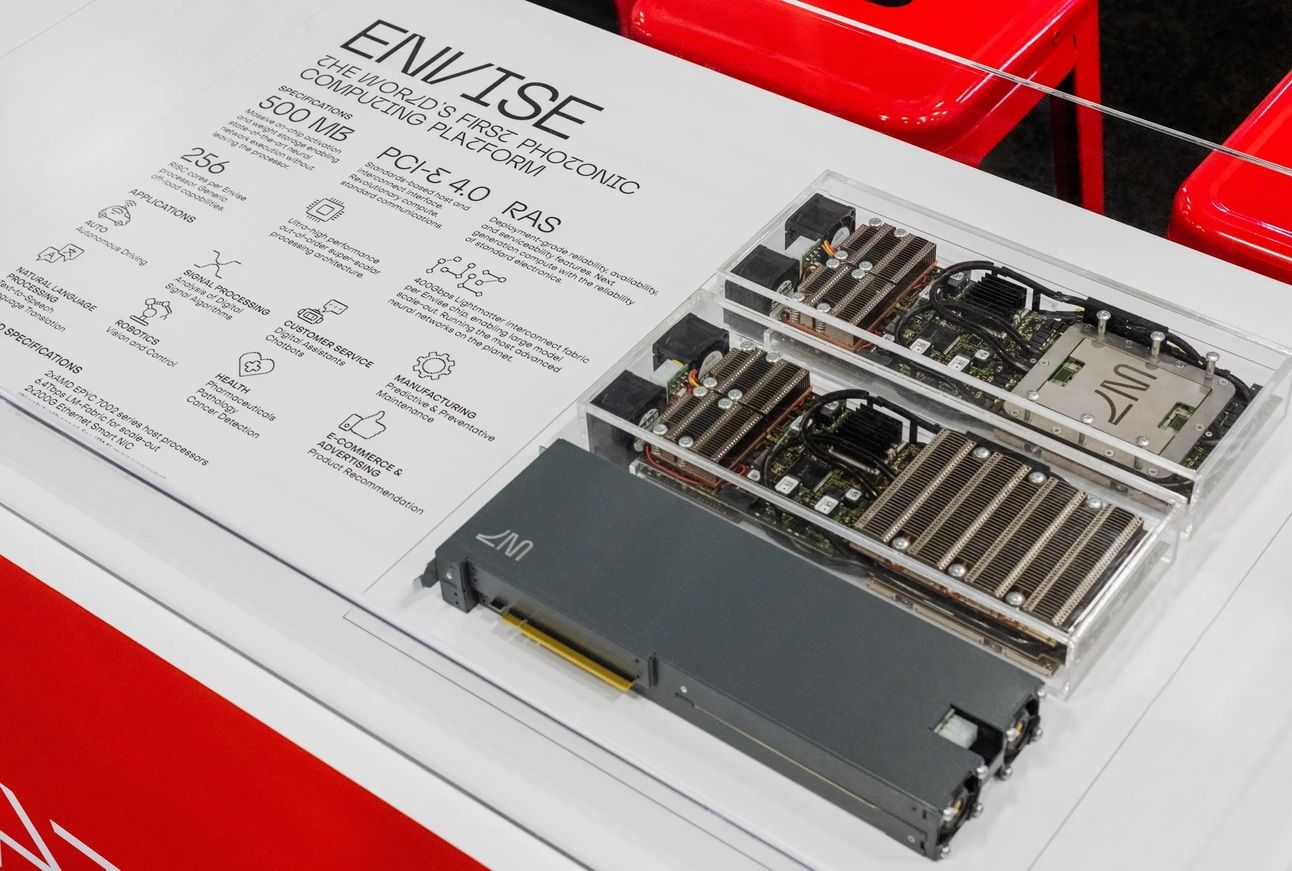
Welcome to this edition of Loop!
To kick off your week, we’ve rounded-up the most important technology and AI updates that you should know about.
HIGHLIGHTS
The AI-quantum startup that’s on track for $5 billion valuation
Why DJI faces a drone ban in the US
How Lightmatter’s impressive product could revolutionise data centres
… and much more
Let's jump in!


1. Eric Schmidt's AI-quantum startup aims for $5 billion valuation
SandboxAQ is a startup that spun out of Google and is working at the intersection of quantum computing and AI.
It recently raised $500 million in February 2023, but is hoping to raise even more in a new round - which could see it valued at over $5 billion.
While the company isn’t creating its own quantum computer, it is developing software that can model molecules and predict their behaviour.
They’re working on products in several different sectors, including materials science, navigation, encryption, and cybersecurity.
They have already signed contracts with Novonix energy, the US Air Force and several American hospitals.
Their focus on “large quantitative models”, which are essentially huge AI models for equations, has got the attention of investors and is partly behind the huge $5 billion valuation.

2. DJI faces a drone ban in the US, listed as a “Chinese military company”
The company produces drones for ordinary consumers and businesses, which are incredibly popular and cheap to buy.
DJI completely dominates the drone sector and has a 70% market share in the US.
The Department of Defense (DoD) has recently included it in a list of "Chinese military companies”, which has led to legal action from DJI.
American companies are also prohibited from providing their technology to DJI.
The US House of Representatives has passed a bill to ban the sale of DJI drones, but it hasn’t reached the Senate just yet.
While the company hasn’t been officially banned from selling their drones in the US, it’s only a matter of time.
US officials are increasingly worried about China’s growing advantage in drone technology.
In the last few years, we have seen DJI drones used by Ukrainian and Russian forces - with both sides using them to attack infantry and tanks.
However, the US needs to support domestic drone production if they want to catch-up with China. Simply restricting the technology isn’t enough.

3. GenAI startups secure $3.9 billion of investment in Q3 2024
PitchBook’s data has revealed that $3.9 billion was invested in generative AI startups, with $2.9 billion going to US companies.
Magic is one of the standout companies, who raised $320 million to develop their own code assistant.
Glean is another big winner, with $260 million raised for their enterprise search products.
While there is scepticism about the reliability and legality of generative AI models, there’s no sign that the investment is slowing down.
However, the sector does face several headwinds. The growing demand for compute is one of the biggest issue, which has prompted several Big Tech companies to invest in nuclear energy - including Microsoft, Amazon, and Google - which I cover further down.

4. Former OpenAI CTO prepares to launch a new AI startup
Several weeks ago, Mira Murati resigned as OpenAI’s Chief Technology Officer. She is now in talks to raise funds for a new AI startup.
It’s believed that the new company will develop its own models and could raise more than $100 million.
After Murati announced her departure from OpenAI, several other executives followed immediately - including the chief research officer and research vice president.
But Murati isn’t the only OpenAI executive to follow this path. Ilya Sutskever was key to OpenAI’s early success and has since started his own tech company, which has raised over $1 billion from investors.

5. Amazon shifts to advanced nuclear reactors
Amazon has announced it will support the development of small modular reactors (SMRs), as part of its efforts to reduce carbon emissions.
The e-commerce giant has partnered with Energy Northwest, a consortium of public utilities in Washington state, to enable the development of four SMRs by the early 2030s.
Amazon will fund the initial feasibility phase of the project and has the option to purchase electricity from the first four modules, which would generate up to 320 megawatts.
The company has also invested in X-energy, a startup developing an advanced nuclear reactor design that’s expected to be used in the Energy Northwest project.
In Virginia, Amazon has partnered with Dominion Energy to explore the development of a 300-megawatt SMR project - which is located near the North Anna nuclear power station.
These investments come as tech companies - including Amazon, Google, and Microsoft - face huge challenges in meeting their climate commitments.
Their data centres are seeing huge increases in energy demand, which is being fuelled by the rise of large AI models.
In the last few weeks, all three companies have announced that they plan to use nuclear power.

US could ban more countries from importing AI chips

The White House is considering new restrictions and could ban exports to Saudi Arabia and the United Arab Emirates - due to national security concerns.
It follows action by the US last year, which banned the sale of these chips to China and placed restrictions on 40 other countries. These are designed to prevent indirect sales to China.
However, the US is concerned about the growing influence of Middle Eastern countries in the AI industry.
Saudi Arabia is planning a $40 billion fund for AI companies and OpenAI is considering investment from a UAE-backed fund.
The United States has a clear advantage over other countries in AI chip design, with Nvidia and AMD being two of the biggest players.
To solidify that advantage, the US Government is eager to keep the technology out of the hands of rival nations.

Adobe develops a tool to protect artists

With the rise of AI models, artists have seen their livelihoods come under attack.
Many tech companies are disregarding copyright law and using their artwork to train AI models.
In some cases, these models are then used to create images and videos for free.
AI has made many artists feel helpless and the change-in-mood was noticeable when I attended this year’s SXSW.
To help with this, Adobe has been working on an experimental tool called Project Know How.
It’s able to identify who owns the copyright for an image or video, which should empower artists to fight back and prevent their work being stolen by others.
Impressively, it even works if the content has been modified or printed on a physical object.
While the tool is being used to help artists, it could also be valuable for news organisations as they try to combat misinformation.

🎨 Midjourney will let anyone edit images with AI
🚀 SpaceX wins a $733 million Space Force contract
🚗 Regulators investigate Tesla's Full Self-Driving software
🎈 Marc Benioff warns that AI is useful, but overhyped
🗣️ Google's NotebookLM now lets you guide their AI-generated podcasts
🤖 Boston Dynamics and TRI will add AI features to Atlas humanoid robot
📱 Mistral releases new AI models for laptops and phones
💻 UK doctors complain that IT systems are “in the stone age”
🏢 Intel lays off 1,300 workers in Oregon
⚖️ New York Times warns Perplexity to stop using its content



Lightmatter
Lightmatter is an impressive startup that’s just raised $400 million to revolutionise data centres.
The company aims to fix a critical bottleneck in AI computing, as their technology now allows hundreds of GPUs to work synchronously.
Lightmatter's photonic chips have been in development since 2018 and provide the fastest interconnect layer available.
Their product has been shown to surpass the current state-of-the-art NVLink technology.
As a result, data centres can dramatically increase the speed and efficiency of their network.
It’s come at a good time, as companies like Microsoft and Amazon are investing huge sums to support AI development.
Clearly, investors were impressed with the company’s technology. Following this latest round of funding, Lightmatter is now valued at over $4.4 billion.
As always, you can click on the link below to find out more.
This Week’s Art

Loop via Midjourney V6.1

We’ve covered quite a bit this week, including:
The AI-quantum startup that’s on track for $5 billion valuation
Why DJI faces a drone ban in the US
Report shows GenAI startups secured $3.9 billion in Q3
The former OpenAI CTO that’s launching a new AI startup
Why Amazon and Big Tech is betting on nuclear
US fears over AI chips and new export bans
The Adobe tool that helps artists spot when their work is stolen
And Lightmatter’s impressive product that could fix critical bottlenecks for data centres
Have a good week!
Liam

Share with Others
If you found something interesting in this week’s edition, feel free to share this newsletter with your colleagues.
About the Author
Liam McCormick is a Senior AI Engineer and works within Kainos' Innovation team. He identifies business value in emerging technologies, implements them, and then shares these insights with others.


